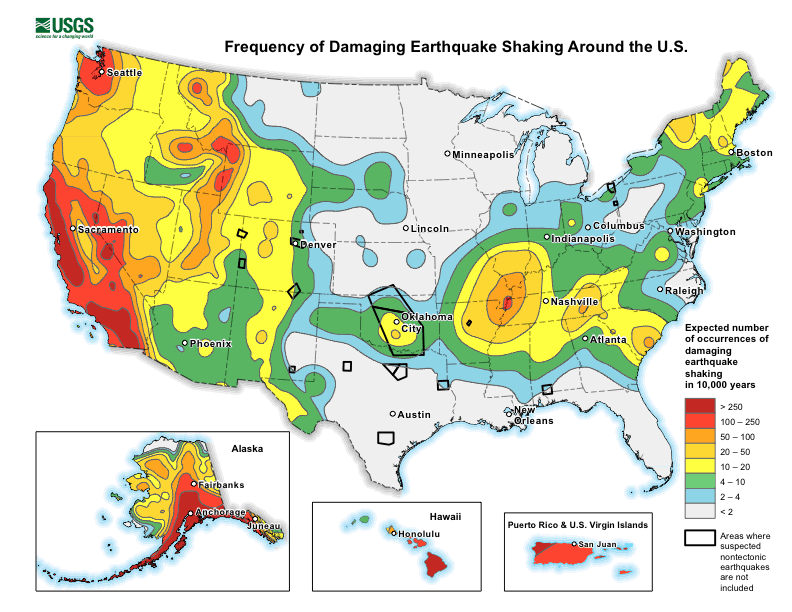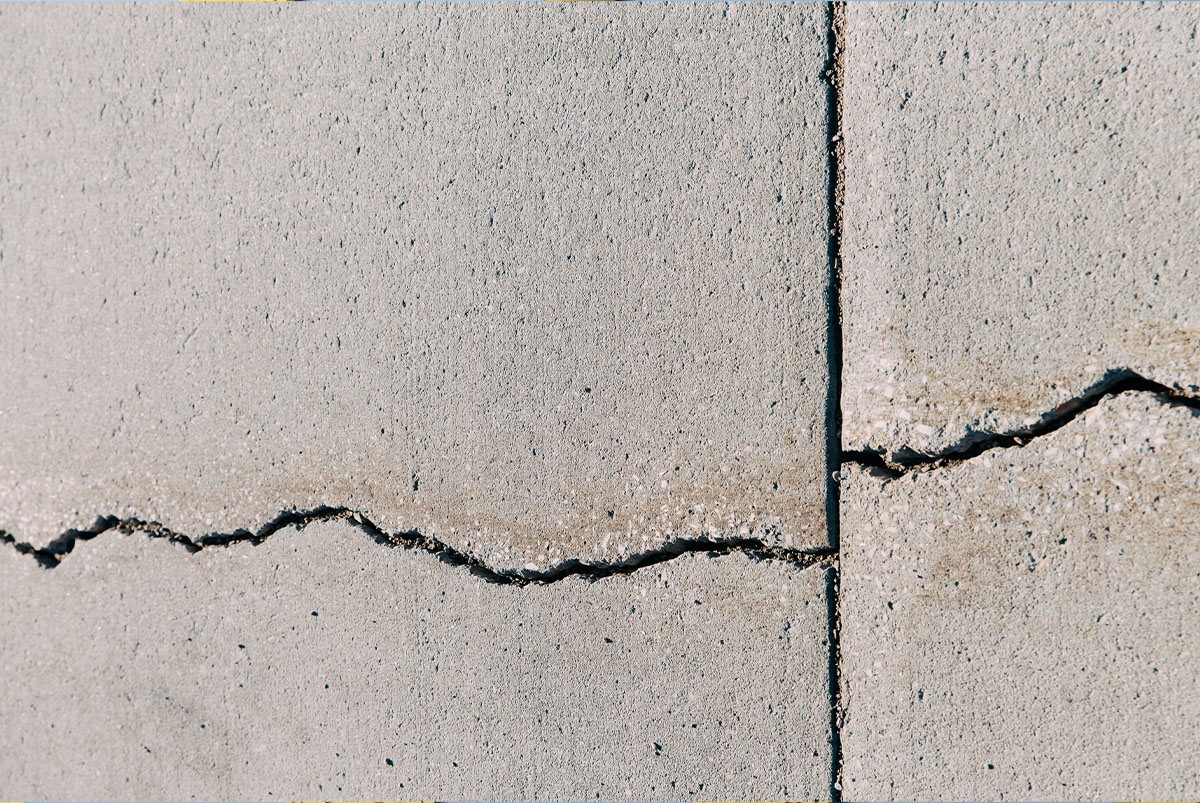Traditional homeowners and renters insurance does not cover earthquakes, making earthquake insurance one of the few options available to people in high-risk zones like California, Hawaii or Alaska. While many homeowners skip earthquake insurance due to high costs, that doesn’t mean you should make the same choice.
To better understand the advantages and disadvantages of buying a policy, let’s look at the overall value of earthquake insurance.
What Does Earthquake Insurance Cover?
Standard earthquake insurance covers:
- Dwelling: Earthquake insurance helps pay for repairs to your home and attached structures that were directly or indirectly damaged by an earthquake. Direct damage might include an earthquake shifting the foundation of your home, while indirect damage might be a tree falling and damaging your roof during an earthquake. Either way, you’re covered.
- Personal property: Earthquakes frequently damage personal belongings in the home. An earthquake insurance policy will compensate you based on the value of your damaged or lost items.
- Living expenses: If earthquake damage makes your home temporarily uninhabitable, an earthquake insurance policy can help pay the cost of your additional living expenses, including housing, food and transportation.
Earthquake insurance covers damage to your home and damage or loss of personal property caused by an earthquake. It can also cover living expenses if you move out of your home because of extensive earthquake damage. However, the coverage does not start until you have paid your deductible.
Earthquake damage that’s not covered
Here is a breakdown of what your earthquake insurance will not cover and what you can do about it:
- Fire damage: Earthquake insurance does not cover fire damage caused by earthquakes. Standard homeowners insurance and renters insurance cover fire damage – even if the fire was caused by an earthquake.
- Flood damage: Floods often accompany earthquakes, but earthquake insurance will not pay for flood damage to your home. In fact, a standard homeowners insurance policy will not cover flood damage either. You will need a stand-alone flood insurance policy for flood damage protection.
- Damage to vehicles: Earthquake insurance will cover lost or damaged personal items, but cars are not covered. You must file a claim with your auto insurance provider if an earthquake damages your vehicle.
- Sinkholes: Earthquakes can cause sinkholes, but most earthquake insurance policies do not cover damage caused by sinkholes. Fortunately, you can purchase a land repair rider (an add-on) to your earthquake or homeowners insurance plan to cover sinkholes.
How Much Is Earthquake Insurance?
Earthquake insurance annual premiums can vary based on many factors, from the value of your property to where your home sits on the Federal Emergency Management Agency’s (FEMA’s) earthquake hazard map.[1] You can expect to pay $900 – $3,000 per year for standard coverage.[2] Any add-ons will increase your costs.
If you live in California, you can use the California Earthquake Authority insurance premium calculator to get estimates.
You must consider more than your annual premium when you are contemplating the cost of earthquake insurance. You must also consider the deductible. The deductible is the amount you will pay out of pocket for earthquake-related expenses before your insurance kicks in. Earthquake insurance deductibles typically range from 10% to 20% of your coverage limit.[3]
For example, let’s say you own a home worth $500,000 and live somewhere in Los Angeles County, which averages a few low-magnitude earthquakes per year.[4] If you get a policy that covers the entire value of your house, you can expect a deductible between $50,000 and $100,000 per year.
Remember, your deductibles must be met before your insurance starts paying for anything.
Is Earthquake Insurance Worth It?
Maybe the question isn’t whether earthquake insurance is worth it but where it is worth it. Earthquake insurance can be worthwhile if you live in a fault-line state like California, Alaska or Hawaii. In states with strong seismic activity, insurance is a protective hedge against the risk of catastrophic damage or loss of property and provides greater financial peace of mind.
There is no denying that you will pay a lot of money to rebuild after an earthquake. But with an earthquake insurance plan, you will pay substantially less.
Is Earthquake Insurance Common?
California experiences 90% of the country’s earthquakes, but only 10% of residents have some form of earthquake insurance.[5] Though the rising costs of earthquake insurance policies and riders are scaring off homeowners, they are most frequently available in fault-line states, including:
- Alaska
- California
- Hawaii
- Nevada
- Oregon
- Washington
- Missouri
This U.S. map shows the expected frequency of damaging earthquake shaking in 10,000 years.[6]

Do You Need Earthquake Insurance? What To Consider
The U.S. Geological Survey provides several factors to consider when you are trying to decide whether to purchase earthquake insurance.[7]
- Your proximity to a fault line or seismic zone
- The construction of your home (architectural structure, foundation, materials, etc.)
- Your property’s geological structure and features
State and federal law does not require homeowners or renters to purchase earthquake insurance. But if you live in an area prone to damaging earthquakes, you might want to consider it to protect your home from expensive earthquake-related damage.
Does my homeowners insurance policy cover earthquake damage?
Your homeowners insurance policy does not cover earthquake damage. It may, however, cover indirect damage like water damage from a burst pipe.
Do renters need earthquake insurance?
Renters insurance does not cover earthquake damage, and your landlord’s earthquake insurance will likely not cover your belongings. If you are renting a home and want to insure your possessions against earthquakes, you should consider earthquake insurance.
Where can I buy earthquake insurance?
If you live in California, you can find a policy through the California Earthquake Authority website. Most of the major homeowners insurance providers in fault-line states offer earthquake riders or stand-alone earthquake insurance.
How soon after an earthquake can I buy coverage?
You can typically buy an earthquake insurance policy 1 – 2 months after an earthquake. The approximate waiting time will vary by provider.
Does earthquake insurance cover my car?
No, earthquake insurance will not cover damage to your car. You must file a claim with your auto insurance provider to receive reimbursement.
Consider Protecting Your Home From Disasters
Depending on where you live and how much protection you want from financial emergencies – earthquake insurance can be worthwhile. Earthquakes can cause extensive damage to your home and your possessions, potentially costing you hundreds of thousands of dollars.
If you live in a high-risk area and can afford the annual premium, earthquake insurance is worth considering.
